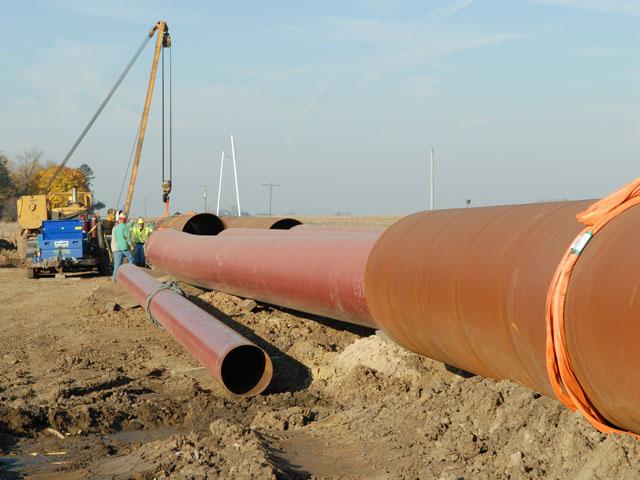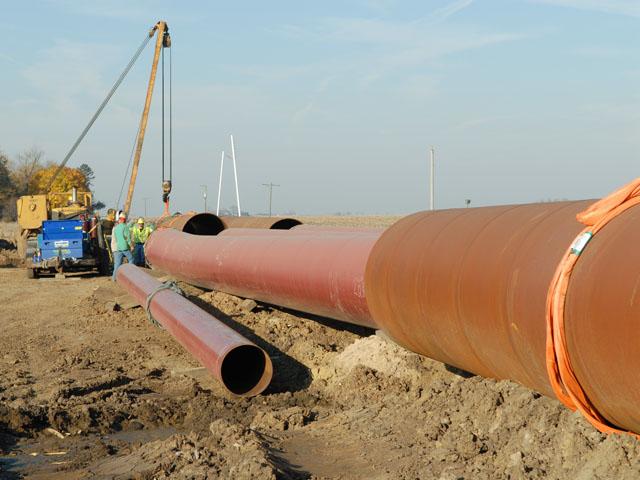Ag Policy Blog
Despite Ethanol Industry Concerns, Iowa House Votes to Restrict Carbon Pipelines
In one of the most heated political battles in the state, the Iowa House of Representatives on Wednesday voted against the interests of the state's biofuels industry in a 71-20 vote to tighten rules for carbon pipeline projects across the state.
The bill passed despite a study released by the Iowa Renewable Fuels Association (IRFA) that Iowa farmer income could decline $1.1 billion annually if ethanol plants in the state can't capture and sequester carbon in the future. IRFA, citing a study by economist David Miller, estimates that ethanol plants could leave the state if they aren't able to tap into pipelines.
See, "Iowa Study: Blocking Carbon Pipelines Would Devastate Ethanol Production," https://www.dtnpf.com/…
IRFA held a second press call earlier this week with corn growers looking to curb support for the House bill.
"I hope that it does not become law the way it is because it will kill these projects and have a very scarily large detrimental impact on our industry," said Monte Shaw, the association's executive director, according to the Iowa Capitol Dispatch.
Carbon sequestration pipelines would be a boon for ethanol plants looking to lower their carbon scores both for states with low-carbon fuel standards as well as the potential Sustainable Aviation Fuel (SAF) market. Two companies, Summit Carbon Solutions and Navigator CO2 each have more than 30 ethanol plans and other agricultural industries signed up to take their carbon emissions.
The U.S. Department of Energy projects that commercial carbon storage could hit 250 million metric tons in 2025, but grow to 2 billion metric tons by 2035.
P[L1] D[0x0] M[300x250] OOP[F] ADUNIT[] T[]
The three carbon pipeline projects looking to develop in Iowa have struggled to gain the support of residents, however. The Des Moines Register released a poll March 14 showed 78% of Iowans oppose companies using eminent domain to build carbon pipelines with 15% of those polled in favor and 7% unsure.
The Register reported, "A strong majority of Iowans oppose eminent domain for the pipelines, regardless of their political party, gender, age, religion, income or where they live."
https://www.desmoinesregister.com/…
The bill, HF 565, which now goes to the Iowa Senate, would require a carbon pipeline company to "acquire at least 90% of the affected route miles through voluntary easements" with landowners before the Iowa Utilities Board could grant the right of eminent domain for the other 10% of pipeline miles.
The bill would also limit claims on crop loss damages to no more than five years after reaching a settlement. Landowners or tenant farmers would be able to file a claim in court for damages, "including, but not limited to crop yield loss damages."
During debate on the bill, Iowa state Rep. Steven Holt, a western Iowa Republican, pushed back on claims that legislation would change the rules in the middle of the game for pipeline companies.
"Let's talk about the landowners who were there first," he said.
Before the vote, landowners and pipeline opponents also held a rally outside the State Capitol as well with signs on semi-trucks and pickups such as "No Eminent Domain for Private Gain." State Sen. Jeff Taylor, also a western Iowa Republican, said during the rally that "At some point we're going to have a floor debate on the Senate side as well," but Taylor had five pipeline bills introduced earlier this year, all of which died without getting any kind of committee hearing in the Senate.
The regulatory review and politics over carbon pipelines continue to play out across the Midwest and Plains states. The Iowa Utilities Board has tentatively scheduled hearings for Summit's pipeline project starting next fall.
The New York Times this week spotlighted the conflicts in South Dakota and Iowa over the pipeline projects.
"What is playing out is a very different kind of environmental battle, a huge test not just for farmers and landowners but for emerging technologies promoted as ways to safely store planet-warming carbon," the NYT wrote. https://www.nytimes.com/…
In North Dakota, the Burleigh County Commission also voted 4-0 on Monday to require special permits for companies to build carbon pipelines, citing them as carrying hazardous liquids. The Bismarck Tribune reported the commission vote would likely spark a lawsuit from Summit Carbon Solutions. The North Dakota Public Service Commission began holding the first of four hearings on Summit's pipeline this week, Associated Press reported.
Chris Clayton can be reached at Chris.Clayton@dtn.com
Follow him on Twitter @ChrisClaytonDTN
(c) Copyright 2023 DTN, LLC. All rights reserved.






Comments
To comment, please Log In or Join our Community .